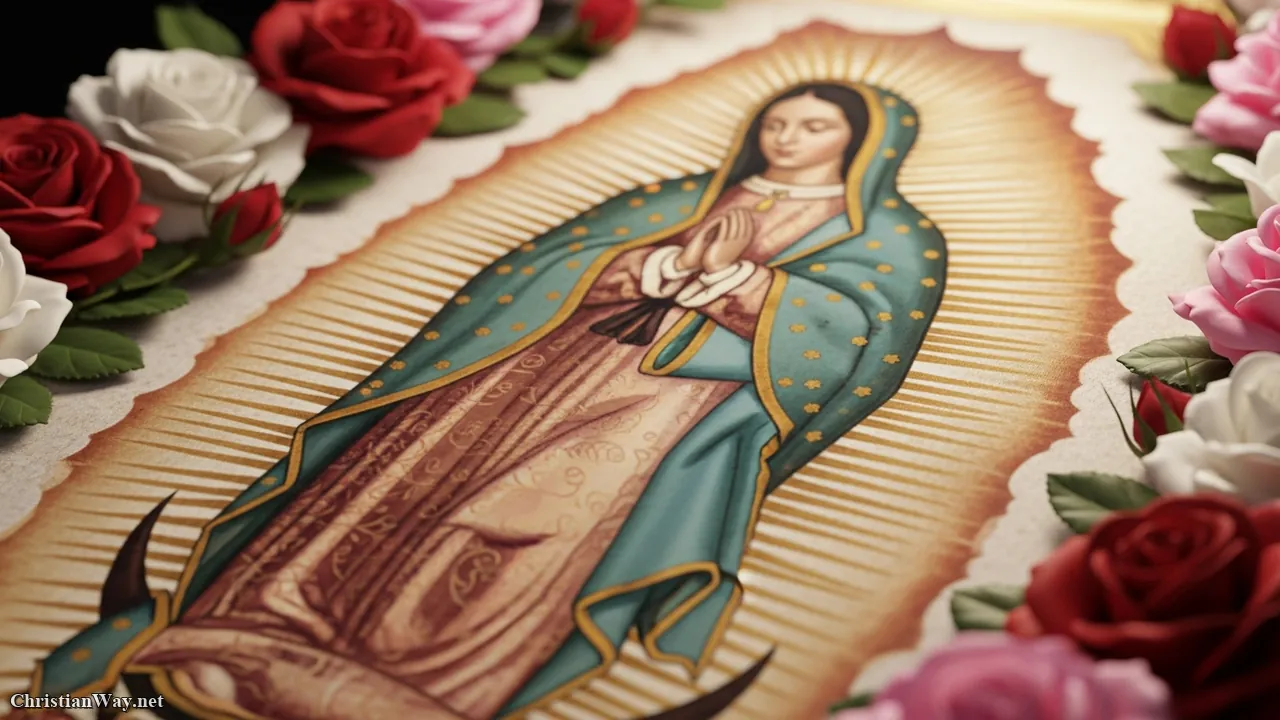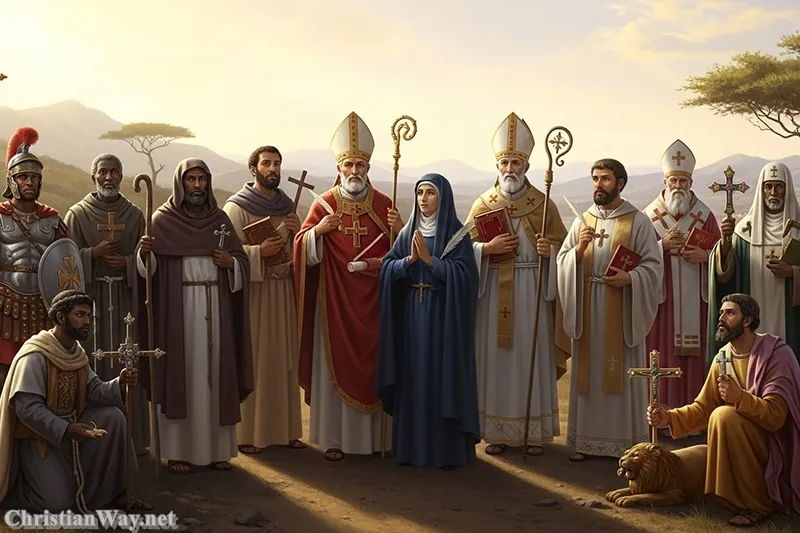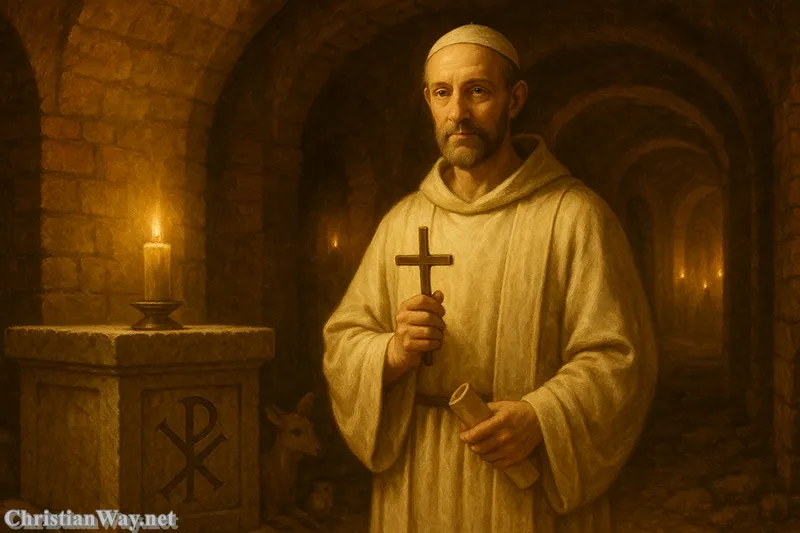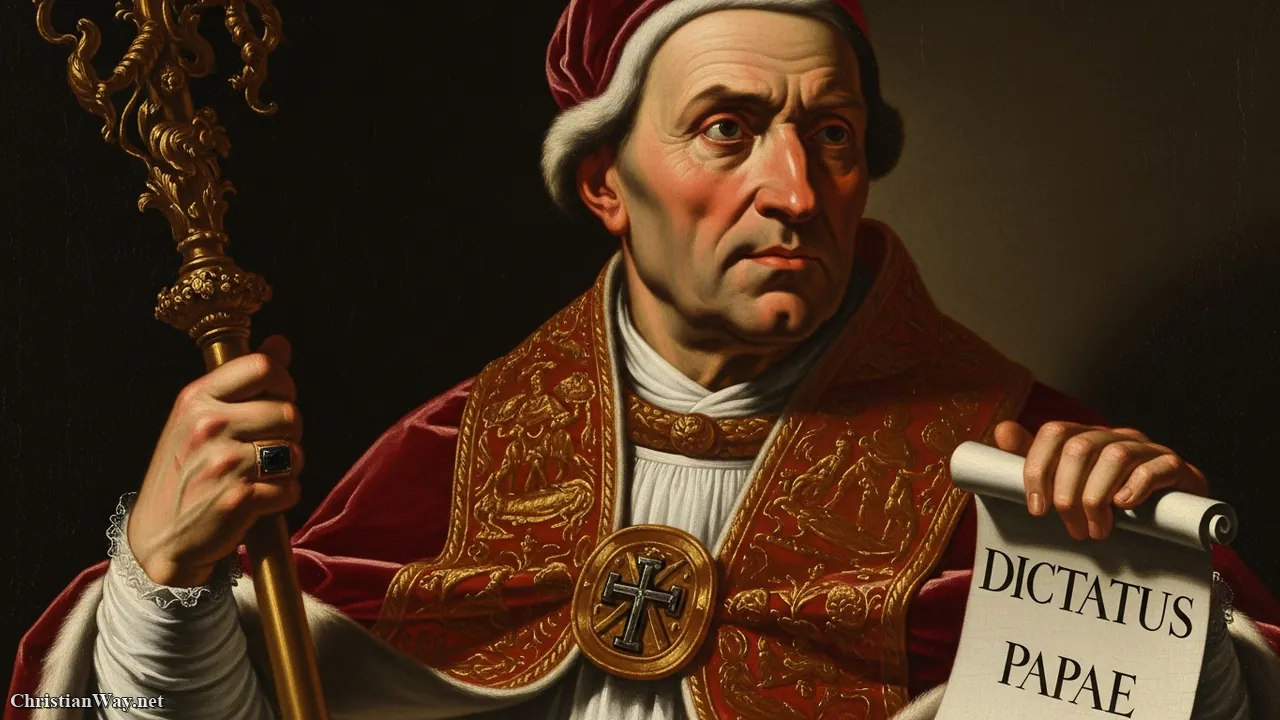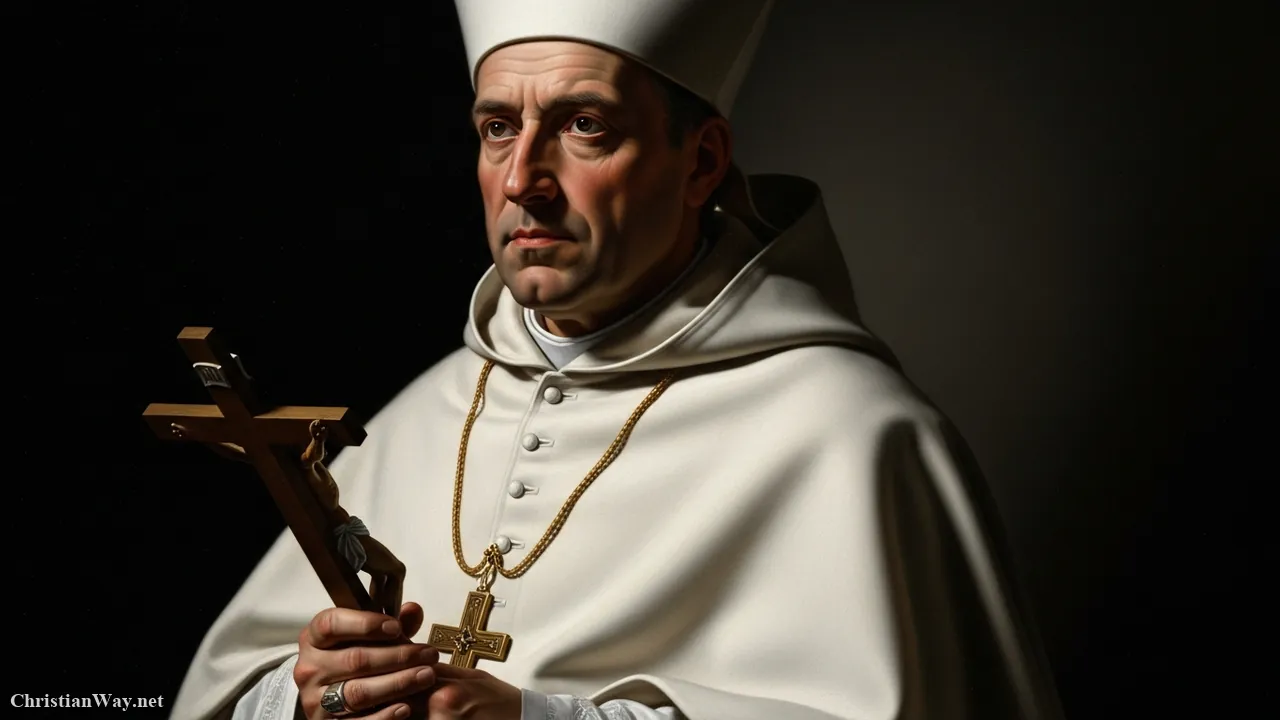Dear friends in Christ,
There are moments in history when faith and power collide — when the heart of a believer is tested not by war or wealth, but by the quiet voice of conscience. One such moment came in the 16th century, when a brilliant English statesman and devout Catholic named Thomas More faced the ultimate question: Who rules the soul — God or man?
Saint Thomas More, known today as the patron saint of lawyers and martyrs of conscience, lived in an age of political turmoil and spiritual conflict. He was one of the most learned men of his time — a scholar, lawyer, author, and father. Yet his true greatness lay not in his intellect, but in his integrity.
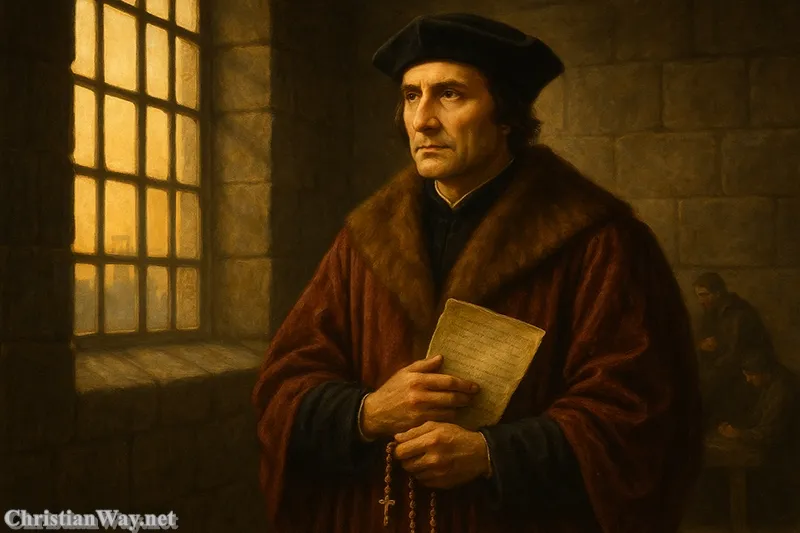
When asked to betray his faith for earthly favor, he chose instead the eternal kingdom. His famous last words still echo through the centuries:
“I die the King’s good servant, but God’s first.”
His story is not only about history; it is about every Christian heart that seeks to follow Christ in truth, even when the world demands compromise.
The Early Life of Saint Thomas More
A scholar formed by faith and reason
St Thomas More biography begins in London, where he was born on February 7, 1478. His father, Sir John More, was a respected judge, and his mother, Agnes, raised him in a home rooted in faith, discipline, and learning.
From a young age, Thomas showed extraordinary intelligence and moral depth. He studied at Oxford, where he developed a love for literature, philosophy, and law. But unlike many of his peers, his learning never led him away from faith; it deepened it.
He was drawn to the life of prayer and even considered joining the Carthusian monks, spending several years in spiritual formation before discerning that his vocation was to serve God in the world as a layman.
That choice — to live holiness in the midst of public life — would define him forever.
Thomas More the Statesman and Family Man
Faith in the heart of politics
Thomas More became a lawyer, then a member of Parliament, and later rose to the highest office in England as Lord Chancellor under King Henry VIII. He was widely admired for his integrity, wit, and fairness.
He balanced brilliance with humility, and power with prayer. Despite his position, he remained a deeply devout man. He wore a hair shirt beneath his robes as a form of penance, rose early for Mass, and prayed with his family daily.
He and his wife, Lady Alice More, had four children, whom he educated in both scholarship and faith — a rare example of a family united in love and learning. His home was known for warmth, laughter, and the presence of God.
He once wrote to his daughter Margaret,
“The things of this world are no more than shadows, and the cleaving to God is the only true reality.”
Through his family and service, he lived the Gospel not in isolation but in engagement — showing that holiness belongs as much to courtrooms and kitchens as to monasteries.
Thomas More and the King — The Test of Faith
When loyalty to God becomes the highest duty
The defining moment of Saint Thomas More’s story came during the reign of King Henry VIII, when the King sought to divorce Queen Catherine of Aragon and remarry Anne Boleyn.
When the Pope refused to grant the annulment, Henry declared himself the supreme head of the Church of England, severing ties with Rome. All public officials were required to take an Oath of Supremacy, acknowledging the King’s new authority over the Church.
Thomas More, loyal to both king and country, could not swear the oath. For him, this was not about politics, but about truth. To deny the Pope’s authority and the unity of the Church would be to deny Christ’s will for His Body.
He remained silent, refusing to condemn others but refusing also to betray his conscience. For that silence, he was imprisoned in the Tower of London.
Imprisonment and Martyrdom
The conscience that would not bend
In the Tower, Saint Thomas More spent fifteen months in prayer and contemplation. He wrote letters filled with humor, courage, and peace — especially to his beloved daughter Margaret Roper, who often visited him.
He wrote:
“I do nobody harm; I say none harm; I think none harm; but wish everybody good. And if this be not enough to keep a man alive, then I desire not long to live.”
Despite pressure from friends, the King, and even family, he refused to compromise his faith.
Finally, in 1535, he was tried for treason. The trial was unjust; his fate already decided. Yet he spoke with grace, defending his conscience:
“I am the King’s good servant, but God’s first.”
He was sentenced to death and beheaded on July 6, 1535. His courage transformed the scaffold into a pulpit, his execution into a witness of faith.
The Faith and Integrity of Saint Thomas More
The triumph of conscience
St Thomas More martyrdom stands as one of the most powerful examples of moral integrity in Christian history. He did not die for politics, but for conscience — the inner voice of God that no earthly authority can silence.
His death was not one of defiance but of fidelity. He never cursed his king; he simply refused to call falsehood truth.
He believed that law and faith must serve one another — that the justice of men must always bow to the justice of God.
His life teaches that conscience is not personal preference, but the recognition of divine truth written on the human heart. To follow it may cost us comfort or career, but to ignore it would cost us our soul.
Saint Thomas More and His Writings
A mind guided by faith
Long before his martyrdom, Thomas More was one of Europe’s greatest scholars. His most famous work, Utopia (1516), described an ideal society built on justice, reason, and virtue.
Though written as satire, it reflected his lifelong search for a balance between faith and governance. For him, the perfection of society could never replace the need for grace in the human heart.
His later writings, including letters from the Tower and treatises defending the Church, reveal a man whose intellect was anchored in prayer.
He wrote:
“The ordinary acts we practice every day at home are of more importance to the soul than their simplicity might suggest.”
Through both his words and actions, he became a saint not of the cloister, but of the conscience — proving that holiness is possible in the marketplace as well as the monastery.
Saint Thomas More: Patron of Lawyers, Statesmen, and Families
The saint who united intellect and holiness
Because of his life as a man of law and faith, Saint Thomas More is honored as the patron saint of lawyers, judges, civil servants, and politicians. He remains a model for all who serve in public life, showing that integrity and faith can coexist with duty and intellect.
He is also venerated as a patron of families, for his example of love and unity in the home. His letters to his children are tender and wise, full of humor and faith.
He once wrote to his daughter Margaret:
“Pray for me, that we may meet merrily in heaven.”
In that simple hope lies the essence of his life — a joy rooted in eternity.
Saint Thomas More and Saint John Fisher
Companions in courage
Saint Thomas More was not alone in his witness. Saint John Fisher, Bishop of Rochester, also refused the King’s oath and was executed just days before More.
Together, they stand as martyrs of the English Reformation, shining symbols of loyalty to Christ and His Church. Their shared feast day, June 22, honors their unity in truth and their shared crown of martyrdom.
The Church celebrates them not as rebels but as saints — men who placed God above all earthly power.
Saint Thomas More and the Voice of Conscience
“No one can command the soul except God”
Few saints have spoken so clearly about the dignity of conscience. For More, conscience was not a private opinion but the place where a person meets the truth of God.
He wrote:
“If honor were profitable, everyone would be honorable.”
But he understood that conscience often calls us to sacrifice rather than success. His life is a reminder that moral conviction must never yield to convenience.
In our own time — when truth is often distorted and conscience dismissed — Saint Thomas More remains a prophetic voice. He shows that the Christian’s duty is not to conform to the age but to be transformed by grace.
Saint Thomas More’s Canonization and Legacy
A saint for every generation
Three hundred years after his death, Pope Pius XI canonized Saint Thomas More on May 19, 1935, recognizing him as a martyr for conscience and truth.
Pope John Paul II later declared him the heavenly patron of statesmen and politicians, calling him “an imperishable example of moral integrity.”
His story continues to inspire Christians of every profession — lawyers, teachers, students, and parents — who must daily balance faith with duty, truth with love.
His witness reminds us that holiness is not retreat from the world but fidelity within it. In a society that often prizes success over virtue, his example stands as a beacon of courage, humility, and grace.
Saint Thomas More and the Modern World
A model for faith in public life
In an age where conscience is often sacrificed to politics, Saint Thomas More teaches that faith and integrity are never outdated virtues.
He challenges us to be honest in small things, brave in big things, and faithful in all things. He calls us to speak truth gently but firmly, to serve with humility, and to place loyalty to God above all other loyalties.
His life speaks especially to those who serve in leadership or law: that justice is sacred, and that the power of conscience is stronger than the power of kings.
Lessons from the Life of Saint Thomas More
1. Follow your conscience, even when it costs you.
Conscience is the voice of God in the heart. To betray it is to lose one’s soul.
2. Be faithful in your vocation.
Holiness is not in status but in faithfulness — whether in the home, the court, or the cell.
3. Serve both God and neighbor.
To serve one faithfully is to honor the other.
4. Seek joy in suffering.
Thomas More’s humor, even in prison, came from a soul at peace with God.
5. Prefer heaven’s truth to the world’s approval.
Eternal joy is worth every earthly loss.
🕯️ Reflect and Pray
O Saint Thomas More,
faithful servant of Christ and courageous witness of truth,
you served your king with loyalty
but your God with love that feared not death.
Teach us to follow conscience with courage,
to speak truth with charity,
and to live with integrity in our families and work.
Intercede for all who face moral choices in our time,
that they may stand firm in faith and gentle in spirit.
Protect those who serve in law and government,
that justice may be guided by mercy,
and truth by the light of Christ.
Saint Thomas More,
pray for us,
that we may be faithful servants of God first,
and good servants of all.
Amen.
May the steadfast faith and peace of Saint Thomas More
guide your conscience and strengthen your heart
to live in truth and love.
— Fr. John Matthew, for Christian Way
